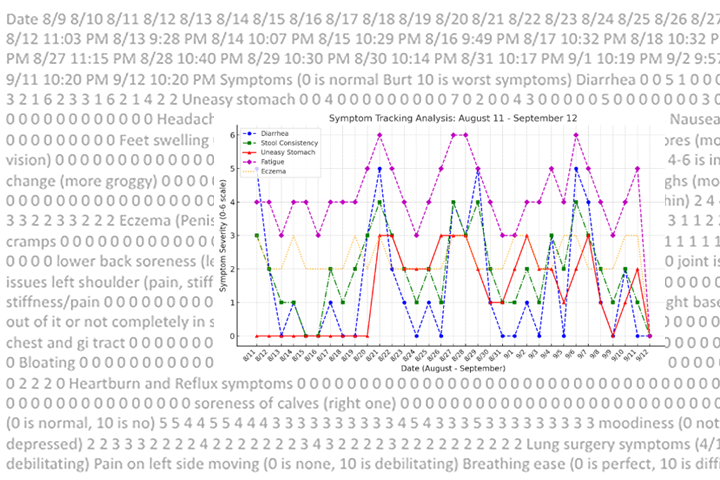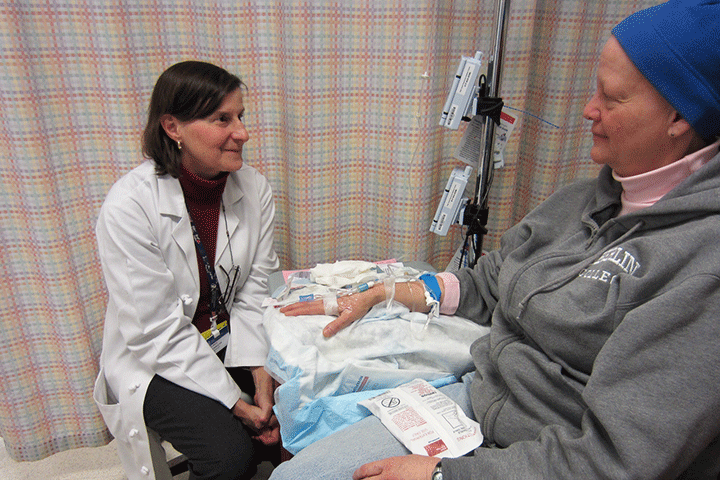Integrative Oncology Made Easy

When you have pancreatic cancer, or any other type of cancer, you’re not only battling the disease, you are also shoring up your body’s resources to tolerate rigorous treatments.
From fatigue and digestive issues to emotional strain and physical pain, cancer and treatment side effects can make each day feel like an uphill climb.
“That’s where integrative oncology comes in,” says Terri Crudup, a cancer survivor, Director at Outcomes4Me, and patient advocate and educator with the Society for Integrative Oncology (SIO). “By treating the whole person, not just the disease, integrative oncology offers patients a stronger foundation for healing, resilience, and hope.”
What Is Integrative Oncology?
Integrative oncology is a comprehensive approach to cancer care designed to support patients physically, emotionally, and spiritually. It is NOT an alternative to conventional medicine.
“Integrative oncology combines advanced conventional care with evidence-based complementary therapies, such as acupuncture, meditation, nutrition counseling, and yoga,” Crudup explains. “The goal is to combine proven cancer treatments with supportive therapies to reduce treatment-related side effects, improve emotional well-being, and strengthen the body’s capacity to heal.”
And oncologists are increasingly taking notice. A 2024 study by the Healing Works Foundation found that 69 percent of U.S. oncologists support the use of complementary therapies for their patients, and nearly 60 percent believe these therapies improve patients’ overall quality of life and help manage side effects.
Your Guide to Safe, Affordable Integrative Therapies
To make integrative cancer care more accessible, SIO created Taking Care of the Whole You, a free, easy-to-use eBook packed with practical, evidence-based advice to help patients, families, and caregivers better navigate the cancer journey.
SIO’s guide explains which therapies are safe and effective, highlighting common approaches such as exercise (so important!), mindfulness, talk therapy, massage, and meditation, summarizing the research and referencing national guidelines that support them. “We wanted to give patients the information they need to find qualified practitioners and identify safe, effective therapies,” says Crudup.
Cost is a common concern, but integrative care doesn’t have to be expensive. Many hospitals and cancer centers offer free or low-cost wellness programs, including yoga, tai chi, and meditation classes. Local nonprofits and cancer support organizations often provide access to support groups, nutrition workshops, and mind–body programs at little or no cost.
“Online resources are another way to explore integrative care affordably,” Crudup explains. “Meditation apps, streamable gentle yoga classes, and nutrition webinars are widely available, often for free. Some insurance plans even cover treatments like acupuncture for pain or nausea, making integrative therapies even more accessible.”
Empowerment Through Integrative Practices
Treatment for pancreatic cancer can be especially demanding—surgery can be extensive and life-changing, and the typical chemotherapies offered are hard on the body. An integrative approach offers practical strategies to help patients address pain, fatigue, anxiety, and digestive challenges. But the modalities aren’t just for patients.
Integrative methods also benefit caregivers and loved ones. Mind–body practices, such as guided imagery and breathing exercises, help reduce stress and promote calm. Exercise through yoga, qigong, or gentle walks helps build strength and energy. And nutrition counseling supports digestion and overall wellness. “There are tools for everyone,” Crudup notes.
Equally important, integrative oncology provides patients with a sense of agency. “Rather than being passive recipients of care, patients become active participants—choosing supportive therapies that align with their values and working in partnership with their medical teams,” she adds.






